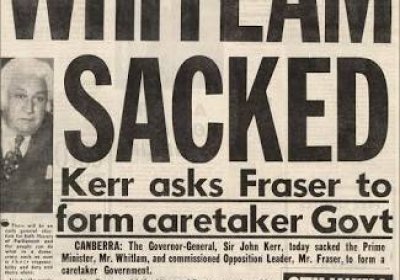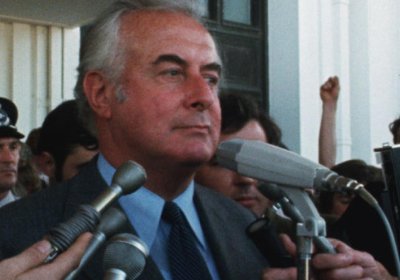Bevan Ramsden asks whether federal Labor’s fears of another United States intervention in domestic politics, such under Gough Whitlam, underpins its enthusiastic acceptance of AUKUS?
Gough Whitlam
The release of the Palace letters between the governor general and the Queen have given renewed impetus for a republican movement, writes Jim McIlroy.
The Australian High Court has ruled that correspondence between the Queen and the Governor-General of Australia, her viceroy in the former British colony, is no longer "personal" and the property of Buckingham Palace, writes John Pilger. Why does this matter?
Gough Whitlam was a maverick social democrat who believed a foreign power should not be allowed to dictate Australia’s economic and foreign policies. There seems little doubt the US was involved in his sacking.
Recently Facebook reminded me of a “memory” of an article I posted three years ago. I had said that I was doing the happy dance because we were making progress and were finally being heard.
About 1700 people packed Sydney Town Hall, and an overflow crowd of thousands filled the adjacent square, for the official memorial service for former Labor Prime Minister Gough Whitlam on November 5.
Sprinkled through the crowd were people who still had their iconic “It's Time” T-shirts and badges from the 1972 election that brought the Whitlam government to power.
It was a memorable gathering not just because of the passing of this former PM, but because Whitlam has come to symbolise a long-lost era of progressive reform in this country.
The passing of former Labor Prime Minister Gough Whitlam at the age of 98 on October 21 provoked a wave of emotion from the community, both young and old. At a time when the federal government is trying to smash the remnants of the progressive reforms initiated during the Whitlam government — in office from December 1972 to November 1975 — the Whitlam era seems like a period from another political universe.
Across the political and media elite in Australia, a silence has descended on the memory of the great, reforming prime minister Gough Whitlam, who has died.
His achievements are recognised, if grudgingly, his mistakes noted in false sorrow. But a critical reason for his extraordinary political demise will, they hope, be buried with him.







